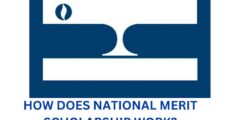When it comes to scholarships, the question of who gets to decide the recipients is a topic of much debate. Should it be left solely to the discretion of the donors, or should there be a more objective and merit-based selection process? This article aims to explore the various perspectives surrounding this issue and provide valuable insights into the potential benefits and drawbacks of allowing donors to choose scholarship recipients.
Contents
The Role of Donors in Scholarships
Donors play a crucial role in funding scholarships, providing financial assistance to students who may not have the means to pursue higher education otherwise. Their generosity and philanthropy enable countless individuals to access educational opportunities that can transform their lives.
Traditionally, donors have had the freedom to establish scholarships according to their own criteria and preferences. This includes determining the eligibility requirements, such as academic achievements, extracurricular involvement, financial need, or specific demographic considerations. By doing so, donors can align their scholarships with their personal values and goals, ensuring that their contributions make a meaningful impact.
The Benefits of Donor-Driven Scholarships
Allowing donors to choose scholarship recipients can have several advantages:
- Alignment with Donor Intent: Donors often have a specific vision or purpose in mind when establishing a scholarship. Allowing them to select recipients ensures that their intentions are honored and that the scholarship serves its intended purpose.
- Targeted Support: Donors may have a particular group of students they wish to support, such as those from underrepresented communities or pursuing specific fields of study. By choosing recipients, donors can provide targeted support to those who may benefit the most.
- Personal Connection: Donors who are actively involved in the selection process can develop personal connections with the recipients. This can create a sense of fulfillment and satisfaction, knowing that their contribution has directly impacted someone’s life.
The Drawbacks of Donor-Driven Scholarships
While donor-driven scholarships have their merits, there are also potential drawbacks to consider:
Read:How to apply for national merit scholarship?- Subjectivity and Bias: Allowing donors to choose recipients introduces the possibility of subjective decision-making and bias. Donors may unintentionally favor candidates who share their background, beliefs, or interests, potentially overlooking deserving individuals who do not fit their criteria.
- Exclusionary Practices: Donors may inadvertently create scholarships that exclude certain groups of students. For example, a scholarship exclusively for students pursuing STEM fields may overlook talented individuals in the humanities or arts.
- Missed Opportunities: Donor-driven scholarships may miss out on exceptional candidates who do not fit the specific criteria set by the donor. This could prevent deserving students from accessing financial aid and educational opportunities.
Striking a Balance: Collaborative Selection Processes
Given the potential benefits and drawbacks, a balanced approach that incorporates both donor preferences and objective selection criteria may be the most effective solution. Collaborative selection processes can help ensure fairness and inclusivity while still honoring donor intent.
One example of a collaborative selection process is the establishment of scholarship committees. These committees consist of representatives from the donor organization, educational institutions, and other relevant stakeholders. By involving multiple perspectives, committees can evaluate applicants based on both donor preferences and objective criteria, such as academic performance, financial need, and community involvement.
Read:Can you get scholarships for online classes?Another approach is to establish general eligibility criteria set by the donor, while leaving the final selection to an independent panel or institution. This allows donors to support their preferred causes while ensuring a fair and unbiased selection process.
Case Study: The Gates Millennium Scholars Program
The Gates Millennium Scholars Program, funded by the Bill and Melinda Gates Foundation, provides scholarships to outstanding minority students with significant financial need. The program is an example of a collaborative selection process that balances donor preferences and objective criteria.
The program’s eligibility criteria are set by the Gates Foundation, focusing on academic achievement, leadership potential, and community service. However, the selection process involves a partnership between the Gates Foundation, the United Negro College Fund, and various universities. This collaboration ensures that the selection process is fair, transparent, and considers both donor preferences and objective criteria.
Read:Can i get a scholarship for being native ameriCan?Conclusion:
The question of whether donors should choose scholarship recipients is a complex one. While donor-driven scholarships have their advantages, such as alignment with donor intent and targeted support, they also have drawbacks, including subjectivity and exclusionary practices. Striking a balance through collaborative selection processes can help ensure fairness and inclusivity while still honoring donor preferences.
Ultimately, the goal of scholarships is to provide opportunities for deserving students to pursue higher education. By combining donor preferences with objective selection criteria, we can create a system that maximizes the impact of scholarships and ensures that they reach those who need them the most.









